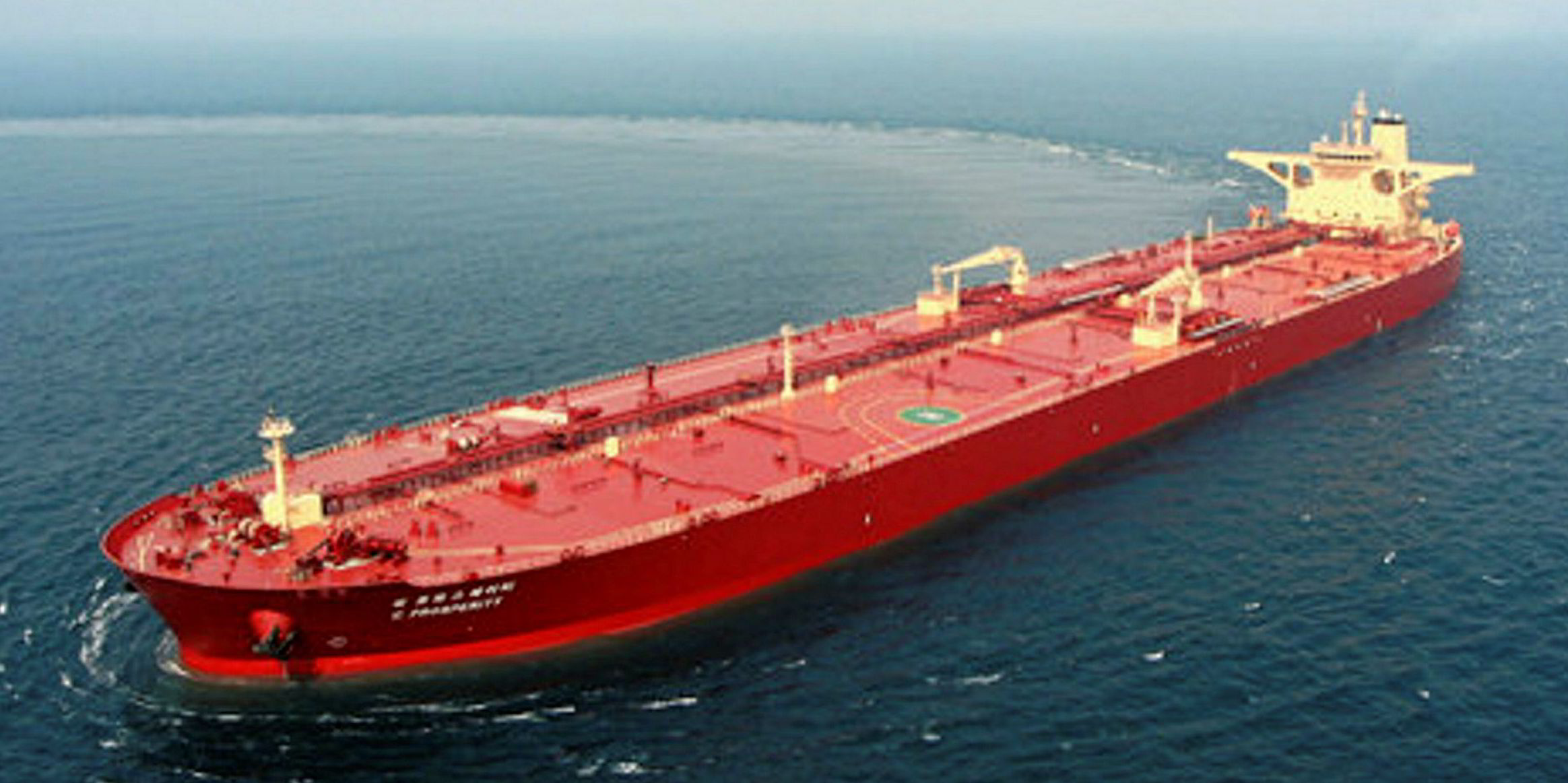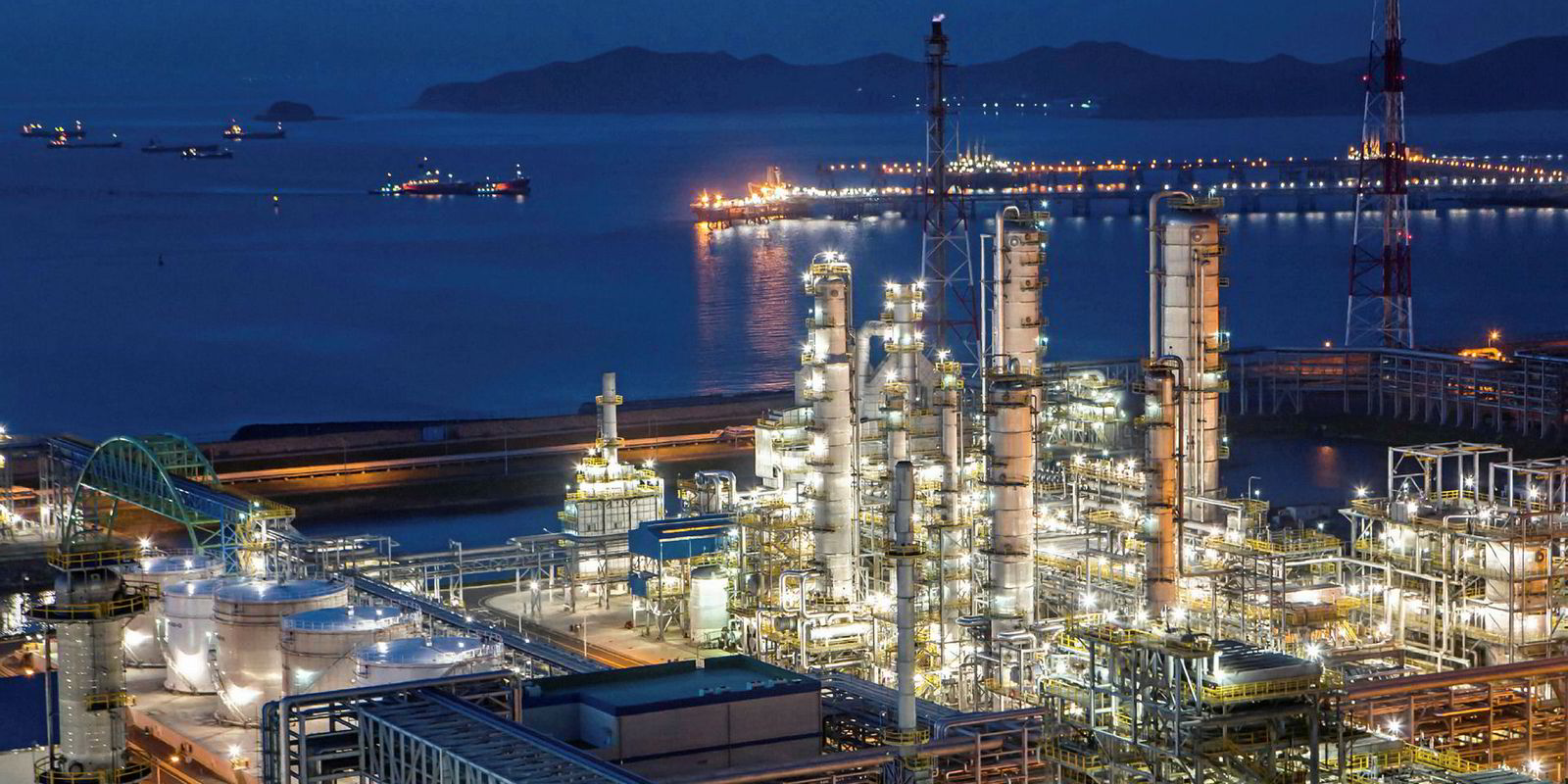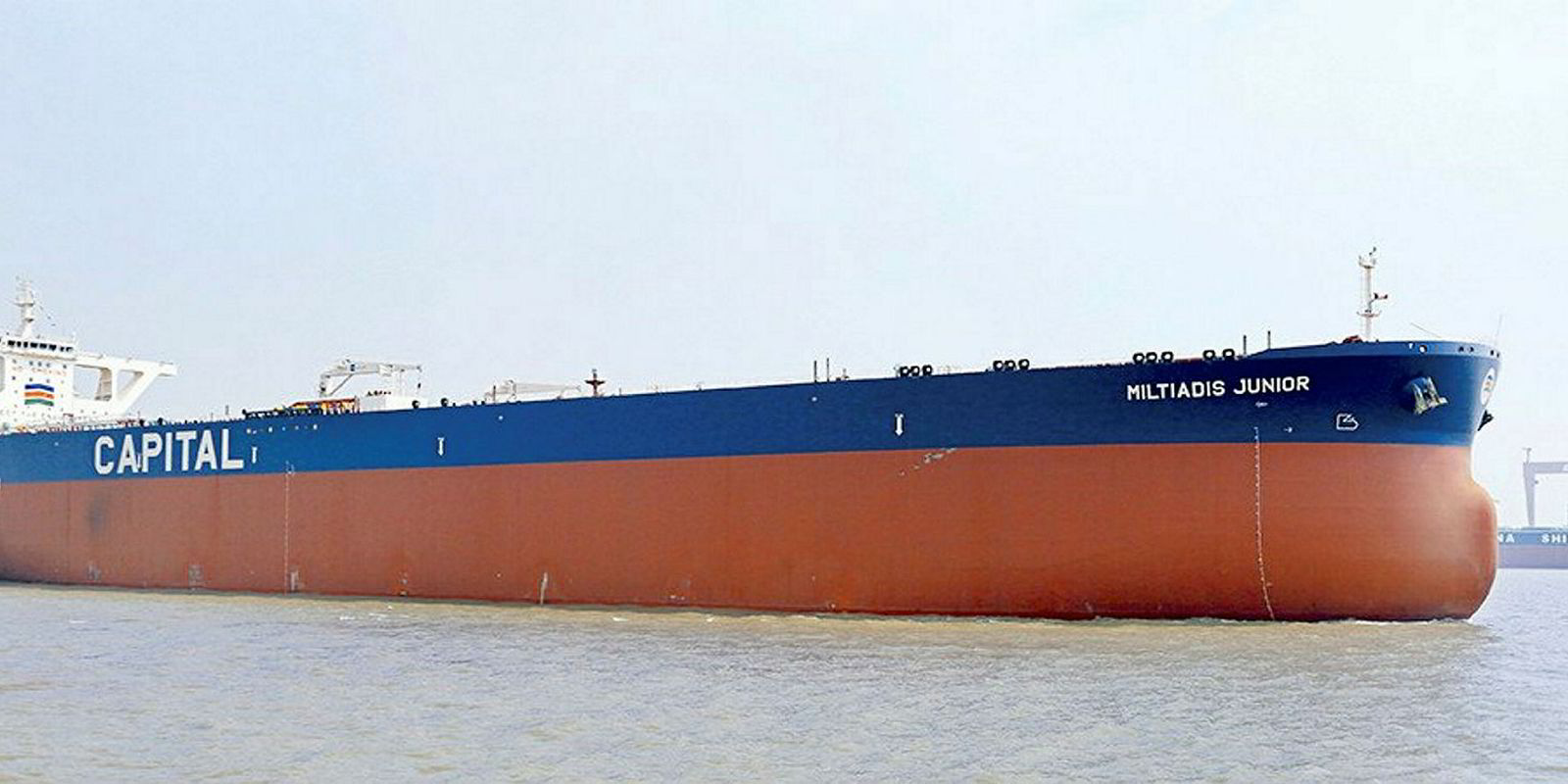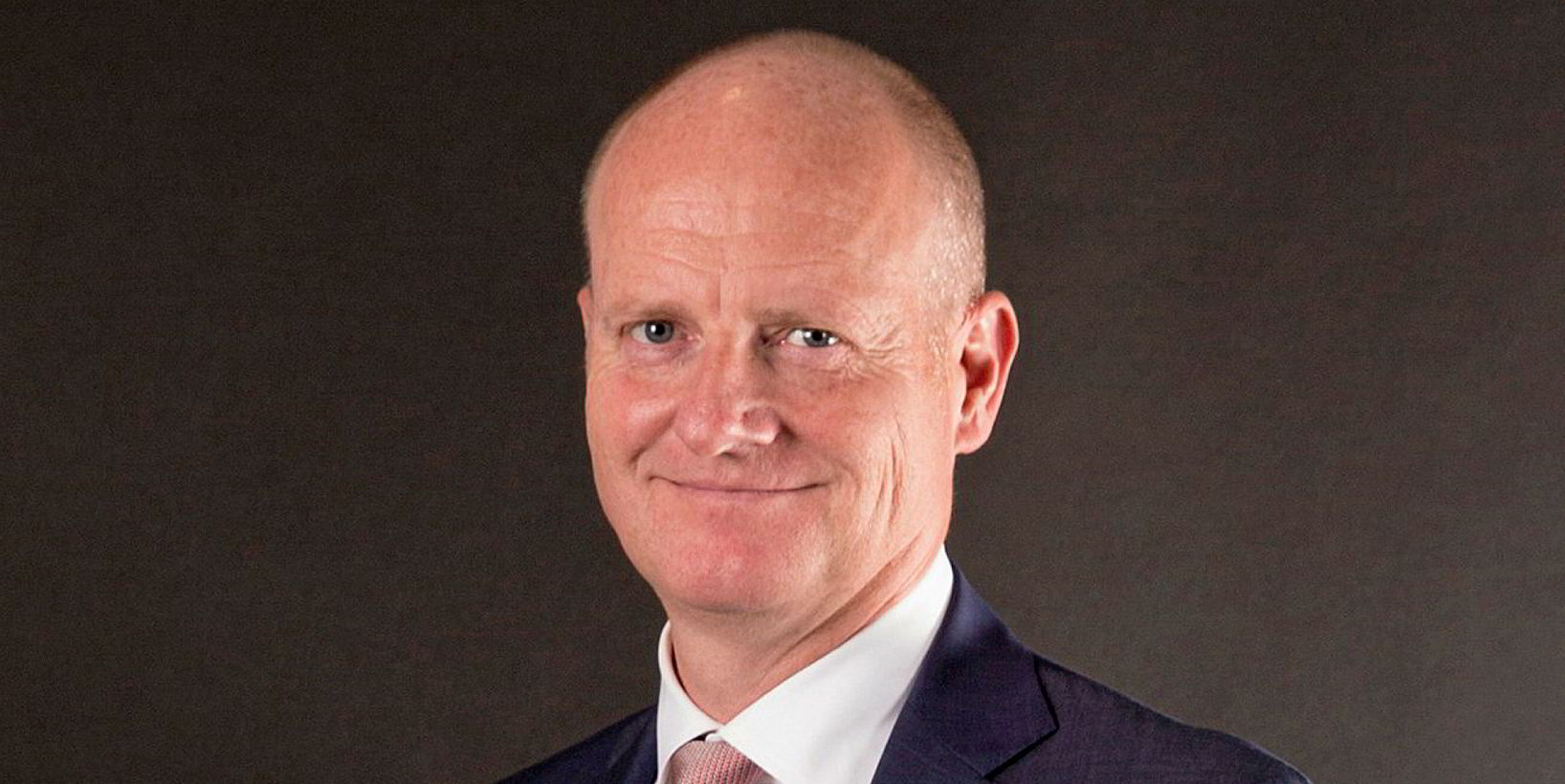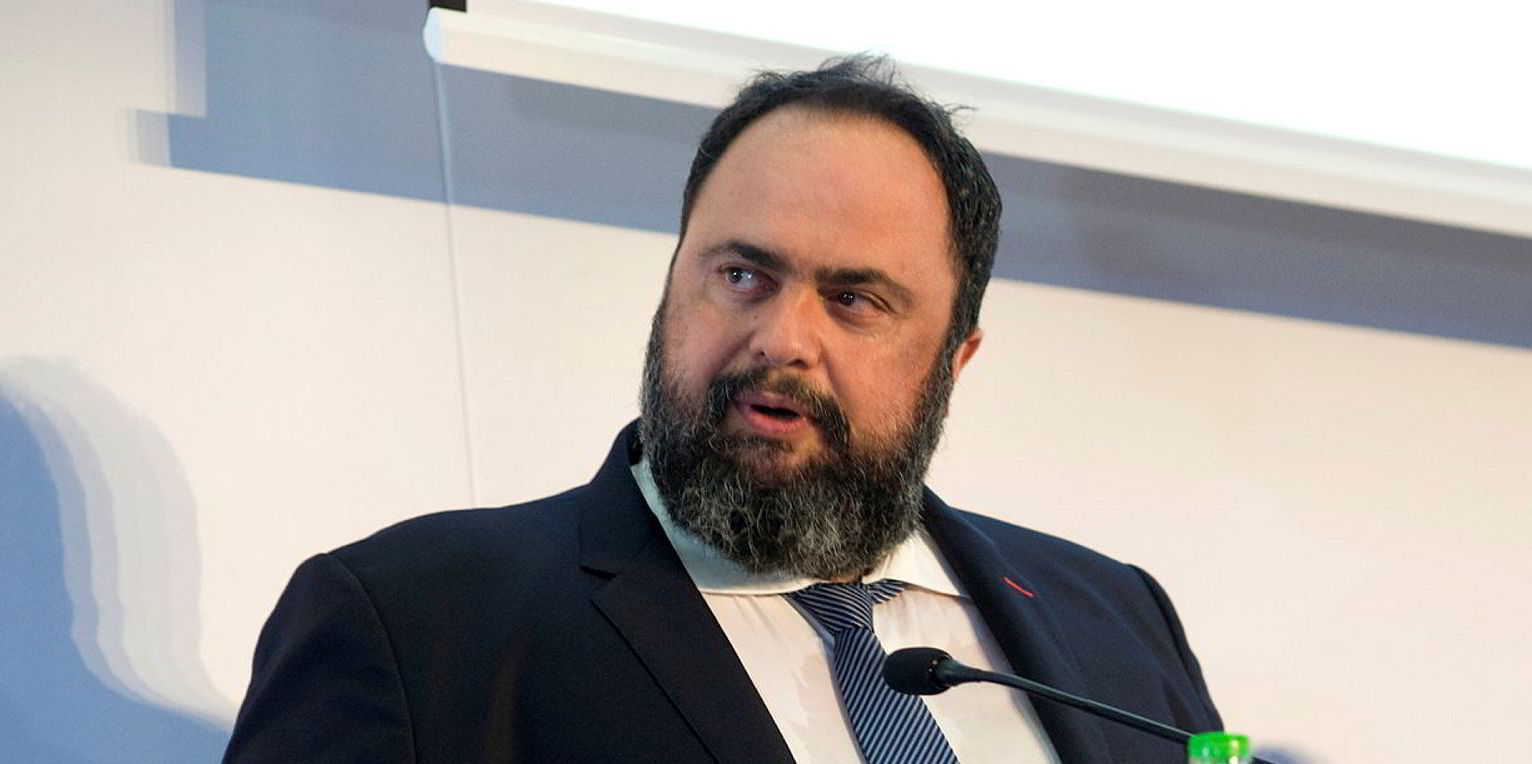A legal fight between SK Shipping and Capital Maritime & Trading over the long-term charter of four VLCCs has shifted to the UK High Court.
SK Shipping Europe is suing Capital Maritime and four of its managed companies for charter cancellations on four VLCCs and seeks total compensation of $36.2m plus interest, according to court documents.
Capital Maritime says it was entitled to terminate the charters and has hit back at the shipowner by filing a counterclaim, seeking damages for what it says are contractual breaches by SK plus restitution of overpaid hire.
The VLCCs were time chartered in a deal that arose after Robert Rexer from Poten & Partners (UK) bumped into Capital Maritime head Evangelos Marinakis and his chartering broker, Andreas Konialidis, at a London restaurant in late 2016.
The 314,000-dwt C Spirit and C Innovator (both built 2013), C Challenger and C Progress (both built 2012) were chartered for 24 months to four Capital Maritime-managed companies at a rate of $30,500 per day in November and December 2016.
But all four of the tankers suffered technical problems and the contracts were terminated early by the charterers.
The UK court wrangling comes 12 months after SK Shipping Europe arrested a Capital Maritime VLCC in June 2018, after obtaining a pre-judgment attachment order in South Korea.
The court dismissed the claim and the 321,000-dwt Miltiadis Junior (built 2014) was released in September 2018, after which Capital Maritime said it was considering filing a counterclaim against SK for damages for wrongful arrest.
Damages
In London, SK is seeking compensation that comprises unpaid hire for the remaining period of each charter, plus $18.1m that the owner claims is owed under a corporate guarantee it says was provided by the charterers' manager, Capital Maritime.
SK claims each of the charters and their recapsincluded a contract of guarantee, which were ratified either by Capital Maritime or via its broker Poten & Partners (UK) as agents.
Capital Maritime's defence says it was unaware of and did not authorise or consent to the conclusion of the charters or the guarantees, which it says are unenforceable.
It also says Poten acted on behalf of SK at all times.
SK "persistently failed" to meet its obligations to rectify problems onboard the vessels, Capital Maritime states in its defence.
Capital Maritime's counterclaim alleges the vessels were maintained inadequately and that the shipowner misrepresented their fuel consumption.
SK has no claim to damages for unpaid charter payments because technical issues caused the vessels to become off-hire and to miss out on contracts with oil majors, Capital Maritime argues.
Charter terminations
In its emailed termination of the vessel’s charter, Capital Maritime told SK that its inability to find market employment for the C Innovator was "wholly attributable to the owners' technical management of their tanker fleet", according to court documents.
"The vessel cannot be traded at anything other than substantially loss-making rates,” Capital Maritime said in the email.
When the four ships began their contracts, time-charter equivalent (TCE) rates for VLCCs averaged $33,969 per day during November 2016, which rose to an average of $43,281 per day during December 2016.
However, 2017 mostly saw a bear market in which VLCC TCE rates struggled to get above four figures and peaked for the year at $23,069 per day.

Fuel consumption
None of the tankers met the level of consumption represented by SK and all four “substantially under-performed", according to Capital Maritime, which claims SK is in breach of contract for misrepresenting the expected level.
SK argues that its estimates were based on reasonable expectations for the vessels' future performance.
It admits that all four VLCCs over-consumed bunkers, but disputes the volumes cited by Capital Maritime.
It also arranged for two of the vessels’ hulls to be cleaned.
During their respective first voyages, the C Challenger consumed 499 tonnes of bunker fuel more than what was represented by SK, and the other three VLCCs each over-consumed more than 200 tonnes, Capital Maritime claims.
Turbocharger failure
SK told Capital Maritime it would investigate the fuel consumption problems and would revert back.
While Capital Maritime was awaiting the response for the C Challenger, the vessel's turbocharger failed, which led to a "series of further breakdowns" and resulted in the C Challenger being off hire for a month after discharging its cargo, Capital Maritime states.
SK says the failure was due to a manufacturer's fault, not lack of maintenance, and the ship was ready to re-enter charter service two weeks earlier than Capital Maritime claims.
Oil majors clause
The C Challenger was rejected by five oil majors after its turbocharger failed.
Capital Maritime claims the shipowner failed to rectify the situation within the required time frame and did not arrange for the vessel to be re-inspected.
Therefore, the C Challenger was unable to regain the oil companies’ approval, which was in breach of the charter’s oil majors’ clause, according to Capital Maritime’s counterclaim. SK disputes this.
Capital Maritime says it was on this basis that it terminated its charter, after the tanker had been off hire for 32 days.
All five oil majors lifted their holds or cautions on the vessel during the first week of July, according to SK.
In fact, SK says the C Challenger performed a voyage for one of the Capital Maritime-managed companies later that month from Southwold, UK, to Tanjung Pelepas, Malaysia.
SK argues it could not have rectified any technical problems while the vessel was en route.
Next stage
The parties have been ordered to try to reach a settlement for both the claim and counterclaim through alternative dispute resolution, according to an order handed down by Mr Justice Teare on 5 July, which was recently made public.
If no settlement can be reached, the case will head to trial in London in October 2020 to determine the claimant’s claims and the defendants’ counterclaims.
The judge has ordered SK Shipping to disclose the hire statements for each vessel, plus three examples of documents it says are evidence of the guarantees provided by Capital Maritime.
Expert witnesses from within marine engineering and shipbroking are to be brought forward by each party to help explain the cause of the tankers' overconsumption of bunkers.
The experts will give their opinions on the steps SK should have taken to rectify the issue and whether the action taken was effective.
They will also help quantify the respective values of the parties' claim and counterclaim.
SK Shipping is being represented by Clyde & Co,while Capital Maritime and its four managed companies are being represented by Reed Smith.
Lawyers for both sides declined to comment when approached by TradeWinds.
This story has been amended since publication to remove an incorrect reference to a vessel's fuel consumption was “0.5 MT per 1 Voy”. This figure refers, in fact, the vessel’s gasoil consumption, not its fuel oil consumption.
